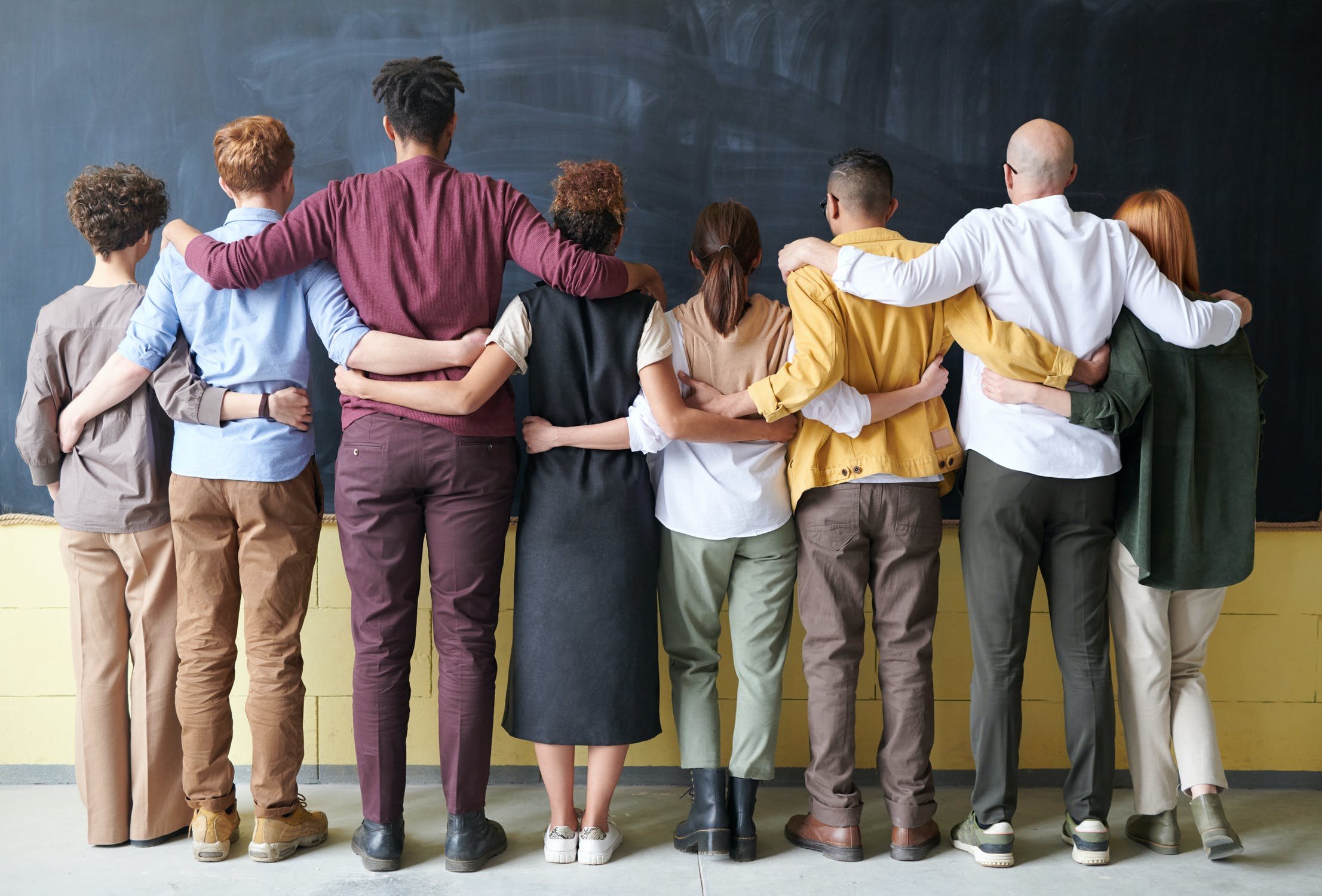By We Level Up Lawrenceville NJ | Author Jessica Lewis, PharmD | Editorial Policy | Research Policy
When facing addiction, the journey toward recovery can feel overwhelmingly solitary. Yet, one of the most powerful tools in the healing process is actually rooted in connection—group therapy. At We Level Up NJ, we’ve witnessed firsthand how the shared experience of group therapy transforms individual struggles into collective strength.
Group therapy for addiction isn’t just about sitting in a circle and taking turns speaking (though that’s part of it). It’s a dynamic, evidence-based approach where individuals find understanding, accountability, and hope through guided interaction with peers who truly “get it.” Unlike individual therapy, which certainly has its place, group therapy harnesses the healing power of human connection—something that addiction often strips away.
The beauty of group therapy lies in its ability to combat isolation, which is both a trigger for and a consequence of addiction. In New Jersey alone, thousands have found their path to recovery strengthened through the unique support that only peers walking a similar journey can provide.
Whether you’re considering treatment options for yourself or a loved one, understanding how group therapy works—and why it matters—could be the turning point in your recovery story. Let’s explore how this cornerstone of addiction treatment at We Level Up NJ might be the missing piece in your journey toward lasting sobriety.
Benefits of Group Therapy for Addiction
Peer Support: You’re Never Alone
There’s something profoundly healing about sitting in a room with people who understand your struggles without explanation. In addiction recovery, this understanding is invaluable—and often unavailable from even the most well-meaning friends and family members who haven’t experienced addiction themselves.
Group therapy creates a unique space where participants discover they’re not alone in their challenges. This sense of belonging counters the isolation that often fuels addiction.
According to the Substance Abuse and Mental Health Services Administration (SAMHSA), social support is a critical component of recovery, with peer connections significantly improving treatment outcomes. Our New Jersey clients consistently report that the bonds formed in group therapy provide strength during vulnerable moments when relapse temptations are strongest.
The peer support found in group therapy also offers practical benefits. Members share coping strategies that have worked in real-world situations—from handling holiday gatherings where alcohol is present to managing stress without substance use. These peer-tested techniques often resonate more deeply than clinical advice alone.
At We Level Up NJ, we carefully cultivate group environments where participants feel safe enough to be vulnerable and strong enough to support others. This delicate balance creates a community where recovery isn’t just possible—it’s happening all around you daily.


Get Your Life Back
Find Hope & Recovery. Get Safe Comfortable Detox, Addiction Rehab & Mental Health Dual Diagnosis High-Quality Care at the We Level Up Treatment Centers Network.
Hotline (877) 378-4154Shared Experiences: Learning Through Others’ Journeys
One of the most powerful aspects of group therapy is witnessing others at different stages of recovery. For someone just beginning treatment, seeing peers who have maintained sobriety for months or years provides tangible proof that recovery is possible—something that can be difficult to truly believe in early recovery.
These shared narratives serve multiple purposes in the recovery process. They provide perspective—helping individuals recognize patterns in their behavior by observing them in others. They offer inspiration through success stories. And perhaps most importantly, they normalize the struggles and setbacks that are natural parts of the recovery journey.
Vicarious learning is particularly effective because it engages emotional and cognitive processing. When group members share their experiences with triggers and how they overcame them, others in the group mentally rehearse similar scenarios, strengthening their coping skills.
In New Jersey communities struck by the opioid epidemic, these shared experiences take on additional significance. Local challenges—from specific drug availability patterns to regional recovery resources—can be addressed with nuanced understanding by peers who navigate the same environment.
The diversity of experiences within a group also broadens each member’s perspective. A 25-year-old struggling with prescription medication addiction might gain insights from a 50-year-old recovering from alcohol dependency despite their different substances of choice. The underlying emotional patterns and recovery principles often transcend these differences, creating unexpected connections and learning opportunities.
Accountability: The Power of Collective Commitment
Perhaps one of group therapy’s most valuable yet challenging aspects is its built-in accountability. When you share your goals and struggles with a group, you create a network of people who genuinely care about your progress and notice your absence.
This mutual accountability extends beyond simply showing up. In group therapy, members often make commitments to specific recovery actions—whether it’s attending a certain number of support meetings, practicing a new coping skill, or reaching out before acting on an urge to use. The knowledge that they’ll report to the group provides additional motivation during vulnerable moments.
According to data from a study published in the Substance Abuse Treatment, Prevention, and Policy journal, group-based recovery programs are more likely to maintain sobriety compared to those who attempt recovery without group support.
At We Level Up NJ, we structure our group therapy sessions to foster healthy accountability without shame. When setbacks occur—as they sometimes do in recovery—the group becomes a place for compassionate problem-solving rather than judgment. This balanced approach helps members develop internal accountability that sustains them long after formal treatment ends.
The group setting also provides immediate feedback on thought patterns that might otherwise go unchallenged. When someone shares a rationalization for potentially risky behavior, other group members can gently identify the flawed thinking based on their own experiences—something uniquely powerful coming from peers rather than professionals.
Comfortable Facilities & Amenities
High-Quality Addiction & Mental Health Rehabilitation Treatment
Rehab Centers TourRenowned Addiction Centers. Serene Private Facilities. Inpatient rehab programs vary.
Addiction Helpline (877) 378-4154Proven recovery success experience, backed by a Team w/ History of:
15+
Years of Unified Experience
100s
5-Star Reviews Across Our Centers
10K
Recovery Success Stories Across Our Network
- Low Patient to Therapist Ratio
- Onsite Medical Detox Center
- Comprehensive Dual-Diagnosis Treatment
- Complimentary Family & Alumni Programs
- Coaching, Recovery & Personal Development Events
How Group Therapy Works at We Level Up NJ
At We Level Up NJ, we’ve developed a comprehensive group therapy program that integrates evidence-based approaches with the practical realities of recovery in our New Jersey communities. Our groups are thoughtfully structured to maximize both therapeutic benefit and participant engagement.
We offer several types of group therapy experiences, each serving different aspects of the recovery journey:
Process Groups focus on interpersonal dynamics and emotional processing. These sessions provide space for deeper exploration of feelings, relationships, and personal challenges. Led by our licensed clinical psychologists with specialized addiction training, these groups help members identify patterns that may contribute to substance use.
Skills-Building Groups take a more educational approach, teaching practical coping strategies for managing cravings, regulating emotions, and navigating high-risk situations. These groups often incorporate elements of Cognitive Behavioral Therapy (CBT) and Dialectical Behavior Therapy (DBT)—approaches proven effective for addiction recovery.
Specialized Topic Groups address specific aspects of recovery, such as grief and loss, trauma recovery, family dynamics, or co-occurring mental health conditions. These targeted sessions acknowledge that addiction rarely exists in isolation from other life challenges.

In general, a typical group session may last 60-90 minutes and follow a structured yet flexible format. Sessions generally begin with a brief check-in where members share challenges or victories. The main portion focuses on the day’s theme or continues ongoing work, while the closing provides an opportunity for reflection and setting intentions.
What sets our approach apart is our team of dedicated therapists who specialize in group dynamics and addiction recovery. We create an environment where authentic connection happens naturally. Our role isn’t to lecture but to guide the process, ensuring everyone feels heard while keeping the group therapeutically productive.
We carefully consider group composition, balancing factors like recovery stage, age, and specific challenges to create cohesive groups where members can truly benefit from each other’s perspectives. While group therapy is a cornerstone of our program, it’s always part of a comprehensive treatment plan that may include individual therapy, medical support, and other recovery services tailored to each person’s needs.
World-class, Accredited, 5-Star Reviewed, Effective Addiction & Mental Health Programs. Complete Behavioral Health Inpatient Rehab, Detox plus Co-occuring Disorders Therapy.
CALL (877) 378-4154End the Addiction Pain. End the Emotional Rollercoaster. Get Your Life Back. Start Drug, Alcohol & Dual Diagnosis Mental Health Treatment Now. Get Free No-obligation Guidance by Substance Abuse Specialists Who Understand Addiction & Mental Health Recovery & Know How to Help.
Evidence for the Effectiveness of Group Therapy
The power of group therapy in addiction treatment isn’t just something we’ve observed anecdotally—it’s backed by substantial research. Multiple studies have consistently demonstrated that group therapy produces outcomes comparable to or better than individual therapy alone for substance use disorders.
According to the American Psychological Association, group therapy can be more effective than individual counseling. This effectiveness stems from multiple factors, including the cost-efficiency that allows for more frequent therapeutic contact and the unique benefits of peer interaction.
Group therapy helps reduce the stigma associated with addiction—a critical factor in recovery success. When participants realize they’re not alone in their struggles, they experience decreased shame and an increased willingness to engage in recovery fully.
Here in New Jersey, where the opioid crisis has hit particularly hard, local treatment outcome data shows that programs incorporating substantial group therapy components achieve retention rates higher than those relying primarily on individual approaches. This matters because more extended treatment engagement strongly correlates with better long-term outcomes.
Perhaps most compelling is the neurobiological evidence: functional MRI studies have shown that positive social connection can modulate brain activity resulting in decreased substance abuse.

Addressing Common Concerns
It’s completely natural to feel hesitant about joining a group therapy program. Many of our most successful participants initially shared similar concerns.
“What if I don’t want to share my business with strangers?” This is perhaps the most common worry we hear. At We Level Up NJ, confidentiality isn’t just a policy—it’s the foundation of trust that makes our groups work. All participants sign confidentiality agreements, and our facilitators create an atmosphere where sharing happens at your own pace.
Many also worry about fitting in or being the “worst case” in the room. The reality? Group therapy brings together people from all walks of life—from executives to construction workers, young adults to seniors—united by their desire for recovery. Our skilled facilitators ensure that differences become strengths rather than barriers, creating an environment where everyone’s contribution is valued.
For those concerned about group therapy replacing individual attention, rest assured that at We Level Up NJ, group therapy complements rather than replaces one-on-one care. Your personal needs remain central to your treatment plan, with group therapy providing additional dimensions of support.
Get Help. Get Better. Get Your Life Back.
Searching for Accredited Drug & Alcohol Rehab Centers Near You? Or Mental Health Support?
Even if you have failed previously, relapsed, or are in a difficult crisis, we stand ready to support you. Our trusted behavioral health specialists will not give up on you. Call us when you feel ready or want someone to speak to about therapy alternatives to change your life. Even if we cannot assist you, we will lead you wherever you can get support. There is no obligation. Call our hotline today.
FREE Addiction Hotline – Call 24/7Take the First Step Toward Healing Today
The journey to recovery doesn’t have to be walked alone. At We Level Up NJ, our group therapy programs offer the unique combination of professional guidance and peer support that makes lasting recovery possible.
Whether you’re struggling with addiction yourself or seeking help for a loved one, we invite you to discover how our community-based approach can make a difference. Our admissions team is available 24/7 to answer your questions, address concerns, and help determine if our program fits your needs.
Recovery isn’t just about stopping substance use—it’s about building a fulfilling life where substances are no longer needed. Group therapy provides the connections, skills, and hope that make this transformation possible.
Call us today at 877-378-4154 to learn more about our group therapy programs and how we can support your recovery journey. Remember: Getting help isn’t a sign of weakness—it’s a sign of courage and the first step toward reclaiming your life.
Frequently Asked Questions
Do you have to pay for group therapy in NJ?
The cost of group therapy in New Jersey varies based on several factors. Many insurance plans cover group therapy as part of addiction treatment. At We Level Up NJ, we work with most major insurance providers and offer financial counseling to explore payment options.
Some community-based organizations and state-funded programs may provide free or sliding-scale group therapy services for those without insurance coverage. We’re committed to helping you find affordable treatment options regardless of your financial situation.
How long does group therapy last in New Jersey?
In New Jersey treatment programs, group therapy duration typically varies based on individual needs and treatment plans. At We Level Up NJ, patient groups often meet several times a week. Many clients continue with weekly outpatient groups for several months after completing intensive treatment to support their ongoing recovery.
Remember that recovery is a personal journey—some individuals benefit from longer-term group participation, while others transition to less frequent attendance as they build strength in their sobriety.
Where in New Jersey can you find group therapy?
Group therapy for addiction is widely available throughout New Jersey. At We Level Up NJ, we offer comprehensive group therapy programs at our treatment center in Lawrenceville.
Beyond our facility, options include hospital-based programs, community mental health centers, and outpatient clinics in cities like Newark, Camden, Trenton, and Atlantic City. Many 12-step groups (like AA and NA) also meet regularly across the state, providing peer support.
The NJ Department of Human Services maintains a treatment directory at 1-844-276-2777 to help locate services near you. Virtual group therapy options have also expanded, making support accessible even in more remote areas of the state.
Experience Transformative Recovery at the We Level Up Treatment Center.
See our authentic success stories. Get inspired. Get the help you deserve.



Start a New Life
Begin with a free call to an addiction & behavioral health treatment advisor. Learn more about our dual-diagnosis programs. The We Level Up treatment center network delivers various recovery programs at each treatment facility. Call to learn more.
- Personalized Care
- Caring Accountable Staff
- Comfortable Amenities
- Licensed & Accredited
- Renowned w/ 5-Star Reviews





